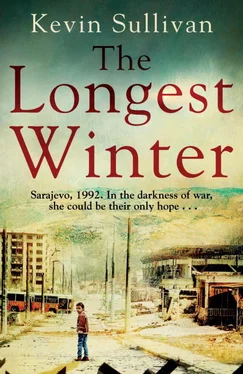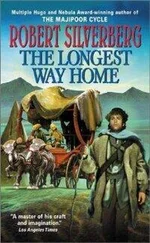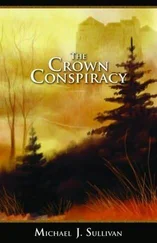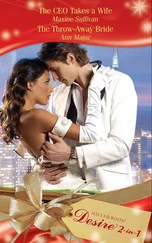‘Fuck,’ Brad said again, accelerating on the last stretch towards the cover of the garage. They looked ahead at the small crowd of people standing inside the garage. ‘Fuck,’ he said, a third time. ‘What’s he doing here?’
‘He got to know the doctor,’ Anna said, feeling an unfamiliar solidarity with Brad.
‘Better late than never,’ Michael Baring greeted them cheerily as they stepped out of the Land Rover.
Brad scowled and took out his notebook. Anna began to snap pictures of Miro and Mrs Pejanović as the soldiers stood aside to give her a clearer view.
Miro’s mother was trying to comfort him but she couldn’t hug him properly because he was in the cot, with a tube sticking into the back of one hand. His mother whispered to him urgently. She looked at Anna as she snapped the shutter, freezing tears on Mrs Pejanović’s frightened, once beautiful face.
‘What happened to you?’ Anna asked Terry.
Terry dabbed her hand with a handkerchief. Blood flowed between her fingers. ‘A small cut,’ she said.
Zlatko was inside the Toyota. ‘Whaddya doing?’ Brad shouted above the noise of explosions.
‘I’m going to turn the car,’ Zlatko said.
He reversed out of the garage. The Toyota’s engine screamed and the tyres skidded on the snow. Zlatko brought the vehicle forward and swung it round ninety degrees. Then he started back towards the garage.
The sudden explosion sent a wave of shrapnel and smoke into the garage. Brad pulled his helmet over his face and turned towards the interior. He felt warm air rush at him. A soldier threw himself over Miro. Mrs Pejanović fell backwards onto the concrete floor. Anna, standing close to Terry, felt the doctor pull her inward, away from the blast.
Brad could hear the sound of shrapnel and metal landing inside the garage. He heard more explosions further away, and there was a smell of smoke and burnt metal. He looked back towards the Toyota as the smoke cleared. The car was wrecked. The tank shell had scored a direct hit.
Alija ran out of the garage and stood in the open looking into the car. Zlatko lay in the mangled front seat, his body split in two. One half was on the floor around the torn-open gearbox. The other half was wedged in a steel mesh between the dashboard and the seat.
Alija recoiled.
Mrs Pejanović crouched over Miro’s cot. Her son screamed in fear, but he had not been hit. The soldier who had protected him sat on the ground. There was a large bloodstain growing on his shirt at the small of his back. He sat stunned, looking at the ground. A cut above his eye sent a steady stream of blood down over his face.
Brad looked around and said, ‘Where’s Michael?’
‘I’m here,’ Baring announced uncertainly. He stood up on the other side of an abandoned car near the front of the garage.
Brad went to where Baring was standing. Baring had gone pale. ‘There’s a guy waiting for me at the Strand café in Ilidža,’ Brad told him. He spoke like a tape recording, his normal tone disconnected from the mayhem surrounding him. ‘He witnessed the assassination on the Airport Road and he wants to tell his story.’ He described the prospective source. ‘You’ll recognise him. He expects a foreign journalist to come and speak to him at eleven-thirty. He won’t wait.’
Baring looked at him with an unfocused expression that made Brad think he wasn’t listening properly. For the first time in their brief, unhappy acquaintance it occurred to Brad that Michael Baring was his senior by at least ten years. ‘I’m supposed to meet this guy,’ Brad told him again. ‘I can’t go, so I want you to go instead. He was there when the minister was shot.’
Baring’s eyes widened.
‘Zlatko got this for me,’ Brad explained. ‘Just go to Ilidža.’
‘What are you going to do?’ Baring was still dazed, but he was coming round.
‘I’m going to take this kid out of here now that Zlatko can’t.’
Brad walked back to Miro’s cot. ‘Get him into the Land Rover,’ he told Anna and Terry.
They lifted the cot into the back and Terry and Mrs Pejanović climbed inside the rear cabin beside Miro.
Anna climbed into the front.
Brad reversed the Land Rover and they moved out into the open towards the spot where Zlatko’s body lay in the wreckage of the Toyota.
‘The last plane leaves at twelve,’ Anna said.
‘Whaddya mean?’
‘The airlift is being suspended.’
‘How the fuck do you know?’
‘I just heard, OK? I heard this morning.’
‘That’s what you were sending?’
‘That’s what I sent. Go faster!’
Brad swung the Land Rover onto the track out of the village. There was more small-arms fire.
He saw Zlatko. He saw him again and again, before the shell exploded, after the shell exploded, life truncated and twisted, changed by impulses, seconds-long impulses and their eternal consequences.
There was a loud crack. The window beside Anna turned into a white spider’s web. Her hands flew out in front of her and she rose from the seat as if she’d been pushed out of it by an electric shock. She felt her helmet move forward on her head. She hadn’t fastened it properly and it fell over her eyes. Frantically, she pushed it back and stared at the shattered window beside her. The shards were held together by the industrial alchemy that makes glass as strong as steel, yet they were held together now like pieces of thin ice on a thawing pond.
‘It hasn’t broken!’ she said. She actually heard the startled words coming out of her mouth. It was as if her body and her brain were separate.
She thought, There is nothing I can do to change the violence of the universe . She had never felt so helpless. She recoiled from this and almost before she knew what she was doing she had slipped the pen from its little pocket underneath her flak jacket and she was holding it over her dog-eared notebook. She wanted to write something. She wanted to describe what was happening. She held the pen over the paper and she realised that she was crying. But she wanted to write more than she wanted to dry her eyes.
She felt Brad’s hand on her elbow.
Even though he was wearing gloves and she had four layers of clothing on, bouncing along over potholes on a battlefield, she experienced a moment of comforting tenderness.
‘Hey,’ he said.
Perhaps he had intended to say something else, but he didn’t.
After the bullet hit the window, Brad accelerated sharply. He knew they might skid, but there were more explosions coming and he believed they were now being targeted. They could see plumes of smoke ahead. More tank shells blasted into the buildings sixty yards away on their right.
In the back of the vehicle, cut off from the driving cabin, Mrs Pejanović looked down at Miro and then out through the rear windows. She did not think about death in those moments but about life.
Mrs Pejanović remembered when the symptoms of Miro’s illness first became apparent. Two months after his sixth birthday he sat down on the top step of the stairway that leads up from the town to the Olympic Museum in Sarajevo. He sat like an old man and, between gasps, he said, ‘Mummy, I can’t breathe.’
They thought it was asthma. The first doctor thought so too and so did the second. It was only because of a chance meeting with a heart specialist who was an acquaintance of Miro’s father that they discovered the real problem. And the real problem was infinitely more serious than Mrs Pejanović or her husband could have imagined. Miro had been staring into the face of death for years.
Now on this bitter day they had emerged at last from what Mrs Pejanović had begun to see as an antechamber of hell and she thought, We are in hell. It is cold and violent and filled with hate.
Читать дальше












